
by Editor | May 31, 2021 | News
Professor Thomas Patterson, Harvard Kennedy School, President of AIWS University, presented
“Remaking the World: A Social Contract for the AI Age.” Here is his message:
While AI can do much good it can also do harm. AI entails risks, such as opaque decision-making, gender-based and other forms of discrimination, unwarranted intrusion in our private lives, and more. AI is making authoritarian regimes more durable. In the 1990s, the median life span of such regimes was roughly 10 years. Now it’s twice that long. A study by the Mass Mobilization Project found that the most durable authoritarian regimes are ones that utilize surveillance technology to track and control their people. Once people know that their government is tracking them, they become compliant.
Governments are not the only ones exploiting AI. So too, for example, are tech companies that manipulate people’s buying behavior and malicious actors who spread disinformation and discord.
Such concerns lead us to conclude that there is a need for a new social contract, one fitted to the AI age and that seeks to maximize the benefits of AI and minimize its exploitation. Without such guidelines, AI entails significant risks to the wellbeing of individuals and nations.
https://bostonglobalforum.org/bgf2022/news-and-events/the-united-nations-centennial-bgf-and-unai-initiative/
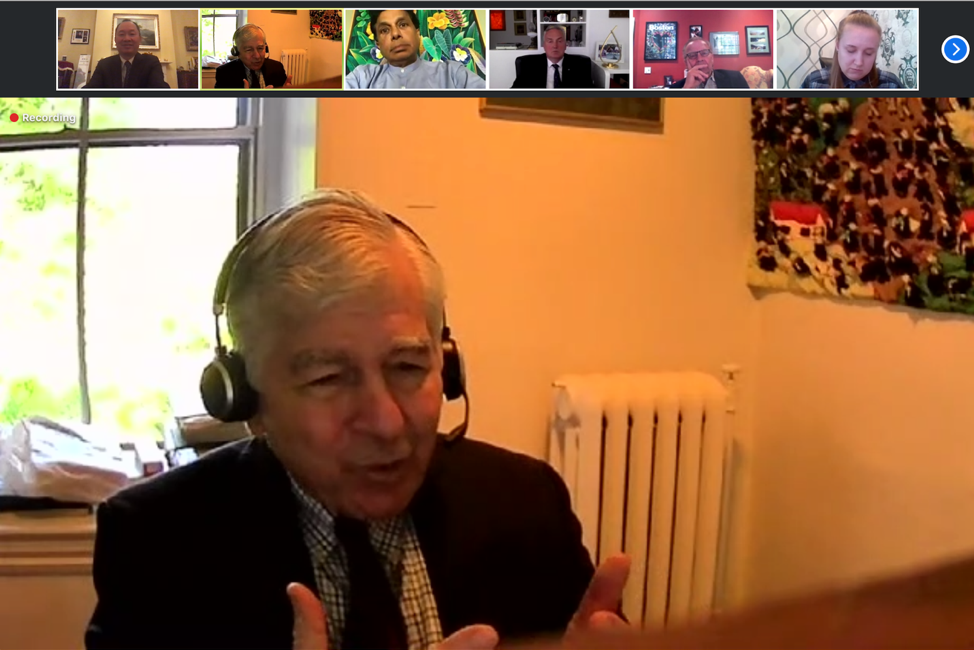
by Editor | May 31, 2021 | News
On May 27, 2021, at launching the book, Governor Michael Dukakis, Co-founder and Chair of Boston Global Forum, presented remarks, made a significant point that resonated with discussions, stating that we should “marry our thinkers with our doers”.
“That’s essentially why we’re here isn’t it? To see if we can marry our thinkers with our doers in a way that makes them thinker-doers. That it doesn’t isolate that knowledge in a corner in some place and make it something unusual, difficult and not applicable. And that’s the big challenge”.
He raised the role of the United Nations for global peace, security, and prosperity today and future.
Governor Michael Dukakis, Professor Thomas Patterson, and Mr. Nguyen Anh Tuan contributed a special chapter: using AI and Digital to innovate, reform politics and make a smart democracy.
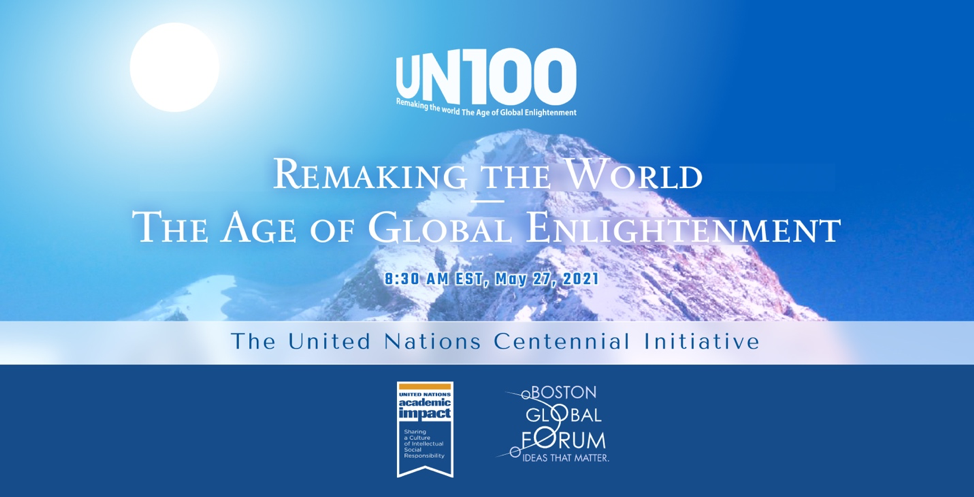
by Editor | May 31, 2021 | Event Updates
The United Nations Academic Impact and Boston Global Forum officially launched their “Remaking the world – The Age of Global Enlightenment” e-book on May 27th, 2021, with ideas, and solutions to reshape the world to become peaceful, prosperous, secure as we move towards an age of global enlightenment.
In opening remarks of the event, Mr. Ramu Damodaran, Chief of United Nations Academic Impact (UNAI) and co-Chair of the United Nations Centennial BGF and UNAI Initiative, reminds us to “never think of the destination of your journey, think about the travel” as we make our mark towards an age of Artificial Intelligence and technology. In this journey, the E-book is a significant step, paving the way for advancements in digital international governance.
Conversations among the contributors to the e-book highlighted key aspects of the initiative, from the need for an alliance of like-minded individuals, to stressing the importance of education in promoting AI in the next decades.
Alex Sandy Pentland went in detail on his contributions to the e-book as well as urged for a change in the SDG 2030 goals to move towards a more positive light. By improving the SDG 2030 goals, Pentland hopes the world would improve access to opportunity, which would then in turn help reach the UN Centennial’s goals.
Former Bosnia-Herzegovina Prime Minister Zlatko Lagumdzija who expressed the need for global leaders in this enterprise towards a global enlightenment to support such initiatives like the e-book and the Social Contract for the AI Age. He also presents the idea of an International Artificial Intelligence Agency (IAIA) as a proper governance structure to enforce the initiatives and strengthen their impact in a world of social change. The prime minister hopes that AI World Society will move from being an initiative to becoming a doctrine to solidify this undertaking in world society.
“Now I see that AIWS that include seven-layer models, Social Contract for the AI Age, Framework for Artificial Intelligence International Accord, concept of new economy and finance system, AIWS values and AIWS city, it can be concluded based on those things, that we did in such a short period, became a doctrine for something which can be called remaking the world in the age of global enlightenment”
“If we want to make a difference, if we want to make pressure on decision-makers, we have to connect as much as possible, something in which I call in a broad scale, an alliance with like-minded entities”
Distinguished leaders and thinkers that also have contribute contents for the book include: Prime Minister Shinzo Abe, EU President Ursula von der Leyen, Speaker of Swedish Parliament Andreas Norlen, Secretay-General of the United Nations Ban Ki-moon, Father of the Internet Vint Cerf, Professor Judea Pearl, Professor Alex Sandy Pentland, Professor Joseph Nye, Professor Thomas Patterson, Professor Nazli Choucri, Mr. Nguyen Anh Tuan and many more.
The book “Remaking the world – the Age of Global Enlightenment” will delivered to readers on June 21, 2021.

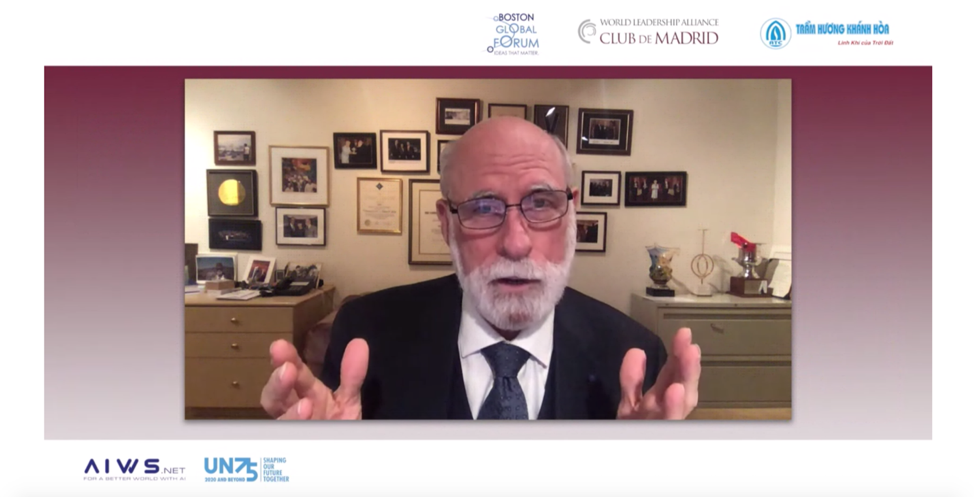
by Editor | May 22, 2021 | News
Father of the Internet, Vint Cerf, member of AIWS City’s Board of Leaders, contribute his concepts of the People Centered Economy to the e-book “Remaking the world – The Age of Global Enlightenment”
Here are some of his quotes in the book:
““We have to raise this point of people-centeredness because we have become a society that is deeply dependent on machines. We are a creative species. We are a species that are tool makers and as our history has unfolded we have increased our dependence on and our ability to create machines that work for us or help us do our work. So I think that it’s very important for us to recall the people-centered focus that we are drawn to in today’s discussions.”
“What I need for you to appreciate is that the side effects of invention do not always become apparent when they are invented and when they are put to use. Indeed in some cases it may take decades to understand in some depth the consequences of technology.»
«Machine learning is a powerful new tool and as we explore all of its powerful positive uses which we experience daily, we will eventually experience the abuses to which this new technology is put to work and we will be confronted once again with the question of how to manage that problem»
«We know that machine learning tools don’t always get it right. We also know that some of the failures are quite subtle although they are also dramatic.»
«The machine learning system doesn’t see things the way we do. Human beings have this amazing ability to abstract from images to recognize various features in the images that that help us identify things the machine learning tools are recognizing features but not necessarily the ones that you and I would normally use in order to identify a cat and a dog and a crocodile. This is just one very trivial example of the ways in which machine learning tools can fail and the reason that’s so important for us to keep this in mind is that the failures can be very harmful.»
«It’s essential to have in the back of our minds a sense for how those tools might fail or might be deliberately abused and you we will need an international call operation in order to induce and introduce this people-centeredness into the use of artificial intelligence because we will use these techniques on a global scale.»
«So now we have to figure out what the international agreements are going to be. Not only to deal with the abuses of the internet and its applications but also the potential abuses of machine learning. That is going to require some deep thought and some deep understanding and some dependence on technologists who are much smarter than I am.»”
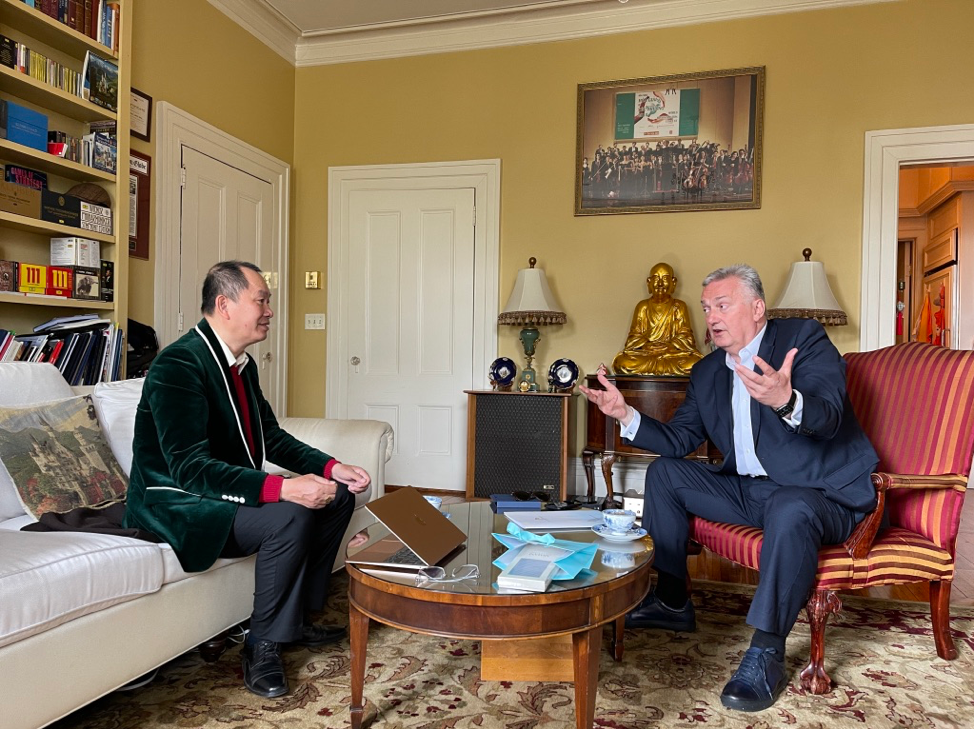
by Editor | May 22, 2021 | News
Prime Minister Zlatko Lagumdzija, Member of the History of AI Board and Mentor of AIWS.net, contributed a chapter for the United Nations Centennial e-book. Here is the concluding sections of his chapter:
Now, with AIWS that include: 7-layer model, Social Contract for the AI Age, Framework for AIIA, Concept of new economy and finance system, AIWS Values and the AIWS City, it can be concluded that AIWS become a doctrine for remaking the world – the Age of Global Enlightenment.
Sixty years ago, President John F. Kennedy put the United States on a mission to the future. “I believe that this nation should commit itself to achieving the goal, before this decade is out, of landing a man on the moon and returning him safely to the earth. No single space project in this period will be more impressive to mankind, or more important for the long-range exploration of space; and none will be so difficult or expensive to accomplish.”
Our generation’s Moonshot is not going to Mars or living on the Moon but having a shared future in shared societies, prosperity and sustainable development on Earth while avoiding and managing nuclear threats, avoiding climate change and mastering technological disruption and AI. Today it is not only that we are incomparably more technologically powerful but economically as well.
Our generation Mission Moonshot – Living on Planet Earth – is not possible only because we have technological or economic power but it requires that the World is being more defined by the “Golden” word of our future – Shared.
Shared: Societies, Sustainable Development, Vision, Values, Peace, Prosperity, Wellbeing, Education, Economy, Technology, Knowledge, Responsibility, and Leadership for the future in Dignity.
Shared and sustainable societies as ones in which all individuals have a common sense of belonging and responsibility where inclusion and their identity differences are their asset not their liability.
We are all different, as a people and as a nation, but at the same time there is much more that puts us together while understanding each other, than divide us along different lines while confronting us.
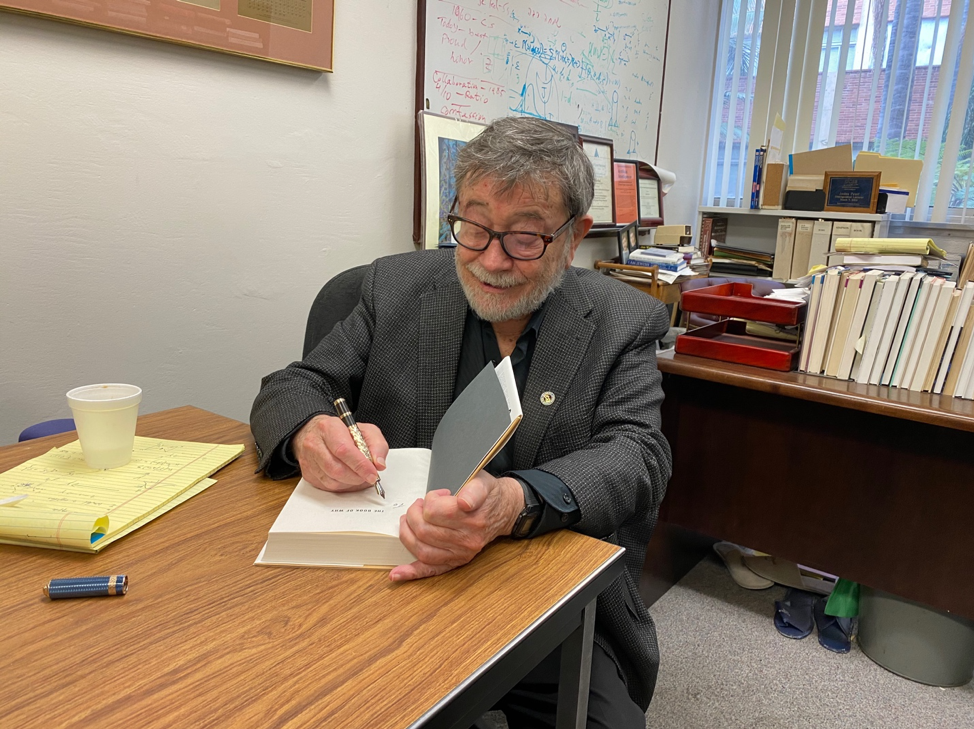
by Editor | May 22, 2021 | News
Professor Judea Pearl, 2020 World Leader in AIWS Award and Mentor of AIWS.net, contributes his new methodology in AI to the United Nations Centennial e-book. He wrote:
This is the first time I am using the word “domestication” to describe what happened in causality-land in the past 3 decades. I’ve used other terms before: “democratization,” “mathematization,” or “algorithmization,” but Domestication sounds less provocative when I come to talk about the causal revolution.
What makes it a “revolution” is seeing dozens of practical and conceptional problems that only a few decades ago where thought to be metaphysical or unsolvable give way to simple mathematical solutions.
“DEEP UNDERSTANDING” is another term used here for the first time. It so happened that, while laboring to squeeze out results from causal inference engines, I came to realize that we are sitting on a gold mine, and what we are dealing with is none other but:
A computational model of a mental state that deserves the title “Deep Understanding”
“Deep Understanding” is not the nebulous concept that you probably think it is, but something that is defined formally as any system capable of covering all 3 levels of the causal hierarchy: What is – What if – Only if. More specifically: What if I see (prediction) – What if I do (intervention) – and what if acted differently (retrospection, in light of the outcomes observed).
This may sound like cheating – I take the capabilities of one system (i.e., a causal model) and I posit them as a general criterion for defining a general concept such as: “Deep Understanding.”
It isn’t cheating. Given that causal reasoning is so deeply woven into our day to day language, our thinking, our sense of justice, our humor and of course our scientific understanding, I think that it won’t be too presumptuous of me to propose that we take Causal Modeling as a testing ground of ideas on other modes of reasoning associated with “understanding.”
Specifically, causal models should provide an arena for various theories explanations, fairness, adaptation, imagination, humor, consciousness, free will, attention, and curiosity.
I also dare speculate that learning from the way causal reasoning was domesticated, would benefit researchers in other area of AI, including vision and NLP, and enable them to examine whether similar paths could be pursued to overcome obstacles that data-centric paradigms have imposed.
I would like now to say a few words on the Anti-Cultural implications of the Causal revolution. Here I refer you to my blog post, https://ucla.in/32YKcWy where I argue that radical empiricism is a stifling culture. It lures researchers into a data-centric paradigm, according to which Data is the source of all knowledge rather than a window through which we learn about the world around us.
What I advocate is a hybrid system that supplements data with domain knowledge, commonsense constraints, culturally transmitted concepts, and most importantly, our innate causal templates that enable toddlers to quickly acquire an understanding of their toy-world environment.
It is hard to find a needle in a hay stack, it is much harder if you haven’t seen a needle before. The module we are using for causal inference gives us a picture of what the needle looks like and what you can do once you find one.
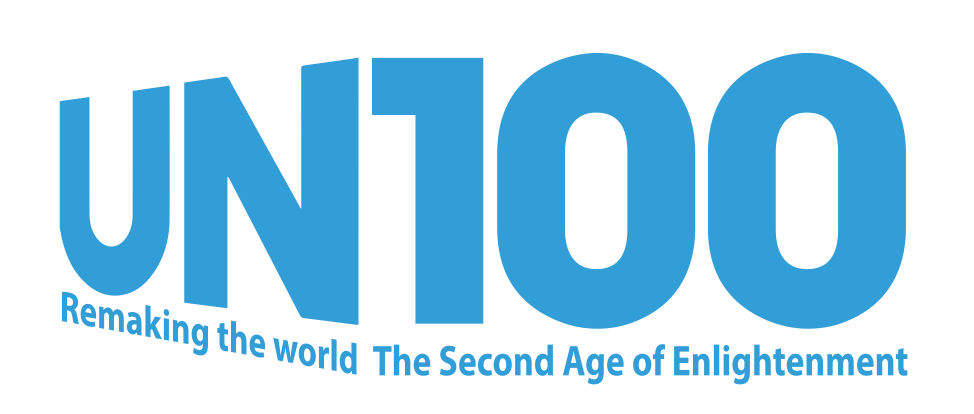
by Editor | May 22, 2021 | Event Updates
On May 27, 2021, the United Nations Academic Impact and Boston Global Forum will officially launch the e-book of the United Nations Centennial Book.
Mr. Ramu Damodaran, Chief of United Nations Academic Impact (UNAI) and co-Chair of BGF-UNAI Centennial Initiative, in honor of the United Nations 2045 Centenary, wrote introduction of the book:
“When my cherished friend Tuan Nguyen of the Boston Global Forum (BGF) and I spoke two years ago on how BGF and the United Nations Academic Impact (UNAI) could mark the 75th anniversary of the United Nations, his ever restless mind raced forward and asked “why not think of the UN at 100?” And so this centennial project began, bringing into its fold some of the finest minds of our times, minds that have anticipated the world we live in today, its terrain of rose and thorn, minds possessed of imagination and reason in looking a quarter century ahead. UNAI was privileged to publish a series of these articles on our website, curated by Tuan, reflecting its mission of being a movement of minds.
Had we embarked on such an exercise in 1995, could we have been better prepared for the extraordinary pace in which our world has moved since then? More particularly, could we have anticipated, and even created, the opportunities of collective, concerted global action, infused by the spirit of the United Nations, to protect us from dangers we foresaw and to seize the possibilities then dimly on horizon?
The United Nations came into being as a cerebral , as much as political, innovation , the very first resolution of its General Assembly, in the January of 1946, was on the “problems arising from the discovery of atomic energy.” 75 years later , in the January of 2021, Governor Michael Dukakis announced the “Artificial Intelligence International Accord Initiative” whose goal he described as “to stimulate a global conversation that will make sure AI is used responsibly by governments and the private sector around the world.” It is precisely conversations of that nature this volume, and BGF Roundtables over the past months, have fostered. Conversations that will continue in the quarter century ahead, shaping a world governed by international law and the exercise of international as much as individual, and indeed intellectual, responsibility (which UNAI seeks to foster) where the creativity and innovation of the human person work to shape a world worthy of our times just as surely as that world works to foster and further, in the phrase of our Charter, the “dignity and worth “of that human person.”
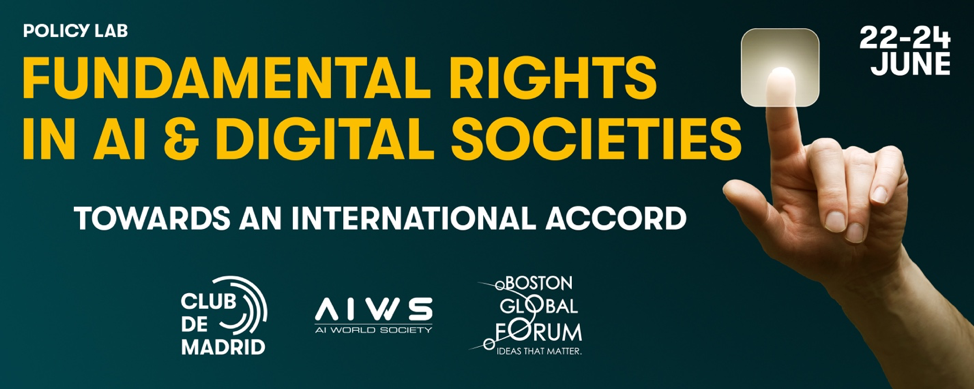
by Editor | May 22, 2021 | News
The Boston Global Forum and the Michael Dukakis Institute wish to congratulates the EU Commission for the “Proposal for a REGULATION OF THE EUROPEAN PARLIAMENT AND OF THE COUNCIL LAYING DOWN HARMONISED RULES ON ARTIFICIAL INTELLIGENCE (ARTIFICIAL INTELLIGENCE ACT) AND AMENDING CERTAIN UNION LEGISLATIVE ACTS”
Boston Global Forum and Michael Dukakis Institute introduced this concept: In 2017 we publicly framed and pushed this initiative at AI World Society. It was warmly welcomed as the Initiative for G7 Summit in Canada in 2018. We have also put forth the Social Contract for the AI Age on September 9, 2020. And, in April 28, 2021, we made public a draft of Framework for AI International Accord on.
The Proposal for a REGULATION OF THE EUROPEAN PARLIAMENT AND OF THE COUNCIL LAYING DOWN HARMONISED RULES ON ARTIFICIAL INTELLIGENCE (ARTIFICIAL INTELLIGENCE ACT) AND AMENDING CERTAIN UNION LEGISLATIVE ACTS has generated wide public discussion. Boston Global Forum and World Leadership Alliance-Club de Madrid will co-organize a dialogue among EU, US, Japanese, Australian leaders, multinational technology company executives, and distinguished scholars at our joint Policy Lab on 22-24 June, 2021. The focus will be on Fundamental Rights in AI & Digital Societies: Towards an International Accord. Several former Presidents and Prime Ministers — members of Club de Madrid — will attend this event.
The discussion will be open and frank, anchored in the constructive spirit of leaders and decision makers who seek to contribute to a solid legal foundation for an AI World Society. We believe this AI World Society will be practical and comprehensive, as well as human centric. It will chart a new path for humanity in The Age of Global Enlightenment.
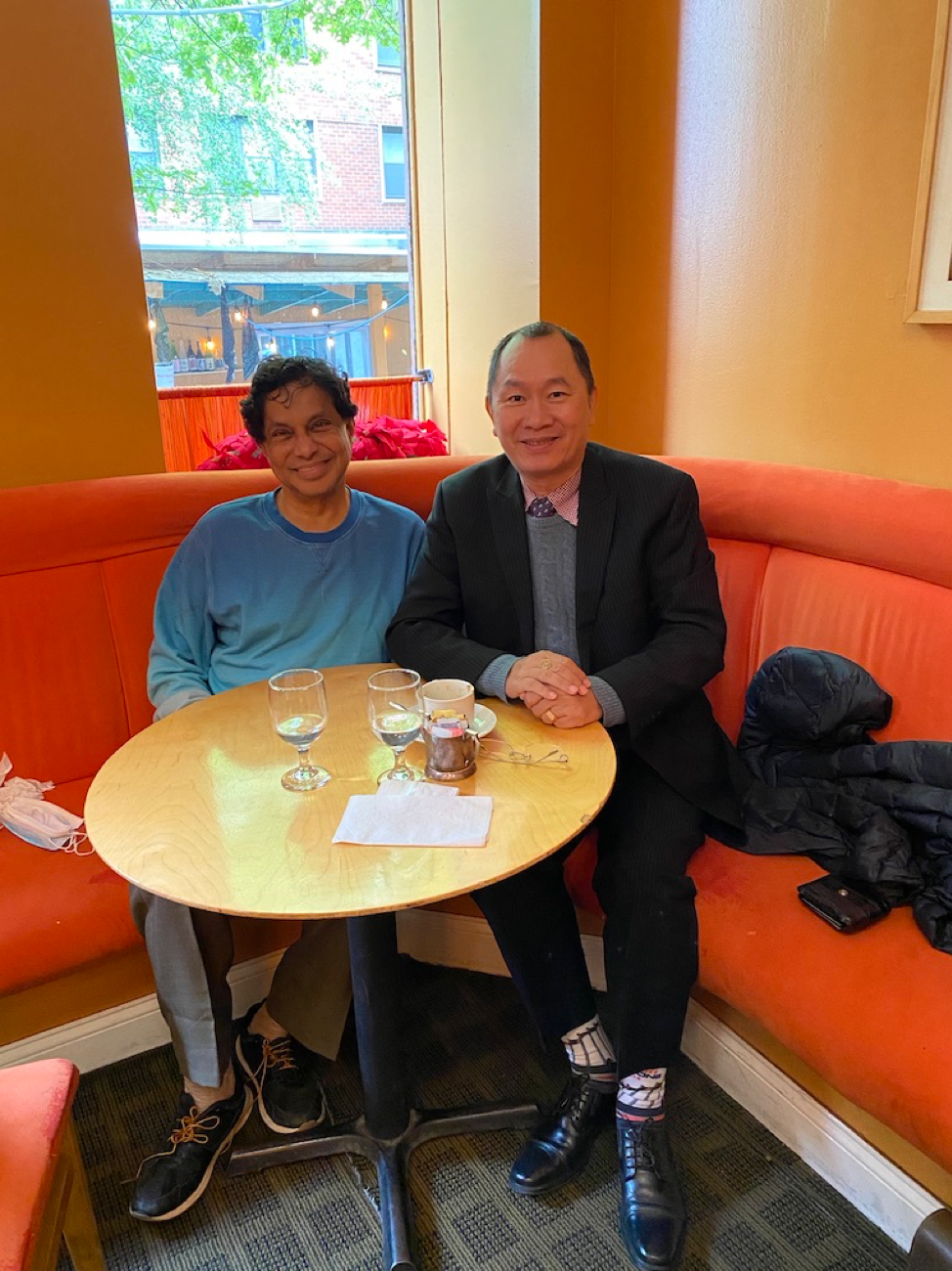
by Editor | May 16, 2021 | News
AIWS City is an initiative for the United Nations Centennial.
The AIWS City to be an application and a practice of what Vint Cerf, father of the Internet, has called “The People Centered Economy.” The core concept, in Vint Cerf’s words is as follows: “All people can create value for each other. A good economy has an ecosystem of organizations that lets that happen in the most meaningful and fulfilling ways.”
As a pragmatic vision, AIWS City is to be based on AIWS Value in order to create a good Ecosystem of the People Centered Economy – “all people can create value for each other”. The operational slogan is “People Centered AI and Internet Ecosystem for Work and Life”. In this context, AIWS puts forth the concept of AIWS Value as follows: AIWS Value =: • traditional value (products, services, data, innovation, creativities, etc.) X • social values (contributions). We consider this as a multiplicative not an additive function This enables a situation where society recognize traditional and social values and can exchange them for AIWS Reward as a digital currency. AIWS Rewards can be exchanged to other values as such products, services, money.
AIWS City will support political and social innovations by presenting them AIWS Rewards based on effectiveness and benefits for improving societies. This is a part of the United Nations Centennial Initiative.

Mr. Ramu Damodaran, Chief Academic Impact of the United Nations, co-founder and co-chair of the United Nations Centennial Initiative.










